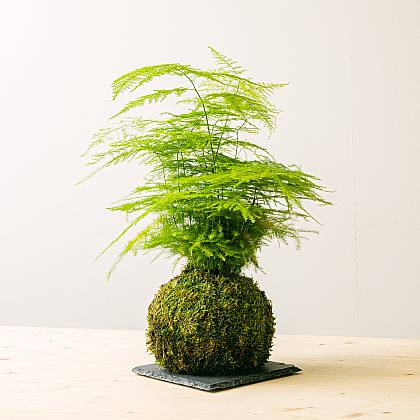Find out how to improve your productivity with the help of plants
Productivity is a key topic in the world of work, and more and more people are looking for ways to increase it. In this context, plants are presented as an effective and accessible tool to achieve this goal
Productivity is a key topic in the world of work, and more and more people are looking for ways to increase it. In this context, plants are presented as an effective and accessible tool to achieve this goal. In this article, we'll explore how plants can improve air quality, reduce stress, increase focus and creativity, reduce noise, and improve the overall work environment. In addition, we will offer practical tips on how to choose and care for the right plants for the best results. Find out how to boost your productivity with the help of nature.
The power of nature in your workspace
The power of nature in your workspace lies in the ability of plants to improve the environment and increase productivity. The presence of greenery in the work environment not only beautifies the space, but also brings numerous benefits for the health and well-being of workers. Plants are able to filter and purify the air, removing toxins and improving its quality. This is especially important in enclosed spaces where ventilation may be limited. In addition, plants have the ability to reduce stress and promote relaxation, which contributes to a calmer work environment conducive to concentration. Scientific studies have shown that the presence of greenery in the workplace can reduce levels of anxiety and depression, improve mood, and increase concentration. In short, having plants in your workspace can transform it into a healthier, more harmonious and conducive environment to boost your productivity.
Plants That Improve air quality and Reduce Stress
Plants are not only decorative elements in the workspace, they can also improve air quality and reduce stress. Some plants, such as peace lily and bamboo palm, have the ability to filter toxins and other pollutants from the air, which can improve indoor air quality. Additionally, having plants in the workspace can help reduce stress levels. A study conducted by Hyogo University in Japan found that people who worked in a plant-based environment had lower levels of cortisol, a hormone linked to stress.
Other plants that can improve air quality and reduce stress include English ivy and Boston fern. English ivy is particularly good at removing formaldehyde from the air, a chemical commonly found in home and office products. Boston fern is another plant that has been shown to reduce air pollutant levels and improve indoor air quality.
Having plants in the workspace can not only improve air quality and reduce stress, but it can also increase productivity. A study conducted by the University of Queensland in Australia found that people who worked in a plant-based environment were 15% more productive than people who worked in a plant-free environment. Therefore, choosing the right plants for your workspace can not only have benefits for your health, but also for your work performance.
The Positive Impact of Plants on Mood and Concentration
Plants not only improve air quality and reduce stress, but they also have a positive impact on mood and concentration. According to several studies, people who work in spaces with plants are happier, less anxious, and more productive. Plants have a relaxing effect on the human brain, helping to reduce stress levels and increase feelings of well-being. In addition, by having a pleasant and natural view, eye strain is reduced and the ability to concentrate is improved. Plants can also help reduce symptoms of depression and anxiety by providing a more pleasant and relaxing environment.
Some types of plants that can help improve mood and concentration are lavender, which has calming properties and helps reduce anxiety; peppermint, which can improve cognitive performance and increase attention; and jasmine, which has a calming and relaxing effect. In addition, plants with bright flowers such as daisies or sunflowers can improve mood and make people feel happier.
In conclusion, having plants in the workplace can be beneficial for improving mood and concentration. By choosing the right plants and strategically placing them in the workspace, you can take full advantage of their benefits to increase people's productivity and overall well-being.
The Connection Between Plants and Creativity
The connection between plants and creativity is a fascinating phenomenon that has been the subject of study in recent years. Numerous studies have shown that having plants in the work environment can stimulate creativity and innovation. The presence of plants in the workspace creates a more relaxed and natural environment, which encourages more creative idea generation and problem solving. In addition, plants can also improve air quality, which in turn contributes to better cognitive functioning and an increased ability to think outside the box. Some researchers suggest that this connection between plants and creativity is because nature helps us disconnect from the stress and distractions of the work environment, allowing our minds to relax and open up to new ideas. Other studies suggest that the presence of plants in the work environment can stimulate the senses, activating brain regions associated with imagination and creativity. In short, integrating plants into the workspace can be an effective strategy to boost creativity and improve work performance.
The Role of Plants in Reducing Noise and Improving the Work Environment
The Role of Plants in Reducing Noise and Improving the Work Environment
Plants are not only pleasing to the eye, but they can also play an important role in reducing noise and improving the work environment. Studies have shown that plants can act as natural barriers to sound, absorbing and scattering sound waves. By strategically placing plants around a workspace, you can significantly reduce ambient noise and improve the quality of the environment.
In addition to their ability to reduce noise, plants can also contribute to creating a more relaxing and peaceful work environment. The presence of greenery in workspaces has been shown to have positive effects on reducing stress and anxiety, which in turn can improve the overall well-being of employees. By creating a calmer environment, plants can help promote concentration and focus on daily tasks.
Not all plants are equally effective at reducing noise and improving the work environment. When choosing the right plants, it's important to consider factors such as their size, shape, and foliage density. Plants with large, dense leaves tend to be more effective at absorbing sound. Examples of recommended plants include bamboo palm, Boston fern, and pothos.
Integrating plants into the workplace can be a simple task. Placing pots on desks, shelves, or hanging them from the ceiling are some options. In addition, it is important to take proper care of plants to ensure their health and maximize their benefits. Watering them regularly, providing them with the right amount of sunlight, and cleaning their leaves are all important steps to keep them in good condition.
In short, plants have a significant role in reducing noise and improving the working environment. Its ability to absorb sound and create a quieter environment can contribute to increased employee productivity and well-being. By choosing the right plants and caring for them correctly, it is possible to make the most of the benefits they offer.
How to Choose the Right Plants to Boost Your Productivity
Choosing the right plants to increase productivity at work is not an easy task. To achieve this, it is important to consider a few factors. First of all, it is essential to evaluate the conditions of the space where the plants will be placed, such as the amount of natural light, temperature, and humidity. In this way, we will be able to select those species that are best adapted to these conditions and can therefore survive and thrive in our workplace.
Another important factor to consider is plant maintenance. While all plants need care, some require more attention than others. If we don't have a lot of time or experience in caring for plants, it's advisable to opt for species that are easy to care for and don't need too much water or light.
In addition, it is important to choose plants that have specific properties to improve productivity. For example, some plants have air-purifying properties and can help reduce pollution levels. Other species can help reduce stress and improve mood.
Finally, we need to consider the size and location of the plants. Larger plants may be ideal for common areas or meeting rooms, while smaller ones may be perfect for individual desks.
In short, choosing the right plants to increase productivity at work requires a careful assessment of space conditions, necessary maintenance, specific properties, and the right size and location. Once we have selected our plants, we can enjoy their benefits for our mental and physical health in the workplace.
Tips for integrating plants into your daily routine and making the most of their benefits
To integrate plants into your daily routine and make the most of their benefits, it's important to follow a few tips. First, you should choose plants that are suited to the conditions of your workspace or home. Some species require more sunlight or water than others, so it's critical to know their needs before acquiring them. In addition, it is advisable to opt for easy-care plants to avoid frustration and ensure healthy growth.
Another tip is to place the plants in strategic places for maximum benefit. For example, if you're looking to reduce noise, plants with large, soft leaves can help you absorb sound. If you want to improve air quality, you should place them near windows or in spaces where fresh air circulates. If you want to increase creativity, place plants in places where you can easily see them.
It's important to take the time to care for your plants and create a daily routine for it. This includes watering them regularly, pruning them, and cleaning their leaves to keep them healthy and free of insects. You can also add organic fertilizers to improve their growth and health.
Finally, don't limit yourself to just one plant. The more plants you have in your space, the greater their positive impact on your productivity and overall well-being. Additionally, plants can be a great way to decorate your home or office and add a natural, fresh touch to your environment.
Plants have an amazing power to improve our productivity at work. From purifying the air and reducing stress, to increasing concentration and stimulating creativity, your presence in our workplace can make a huge difference. Choosing the right plants and learning how to integrate them into our daily routine will allow us to make the most of their benefits. However, beyond their specific properties, plants invite us to reflect on our relationship with nature and how we can find a balance between our artificial environment and the natural world. How can we create workspaces that connect us to nature and foster our creativity and well-being? This question challenges us to explore new ways of designing and organizing the workplace, seeking greater harmony between the human and the natural


